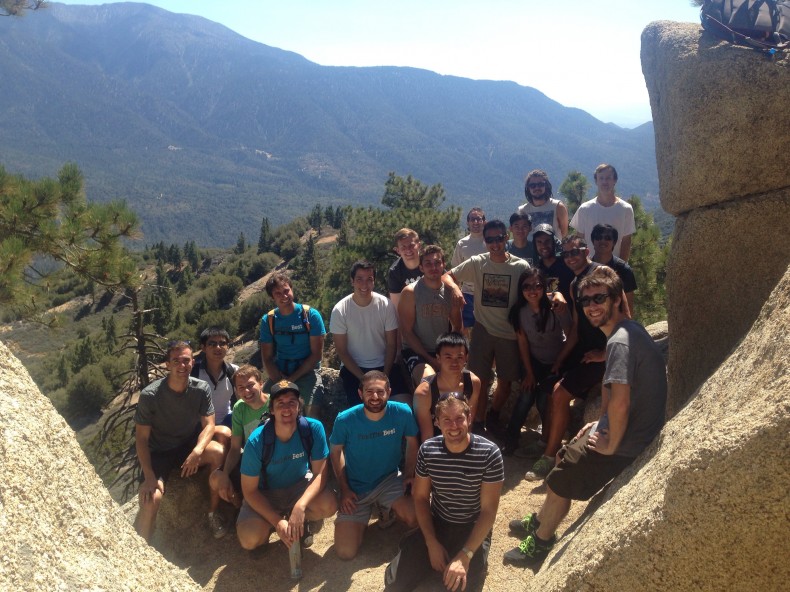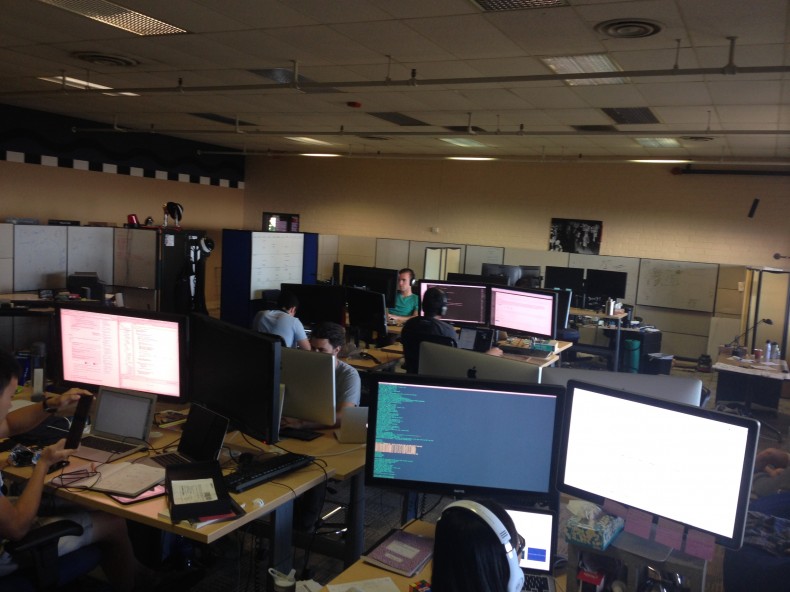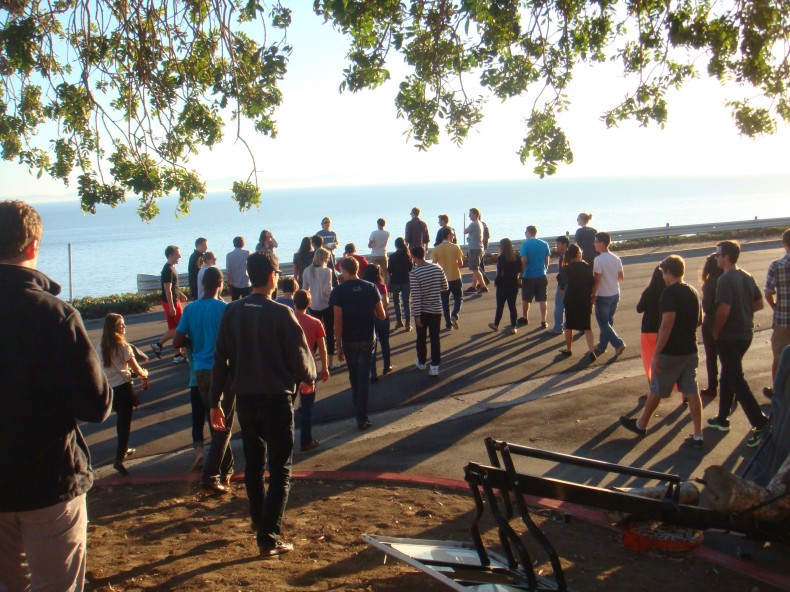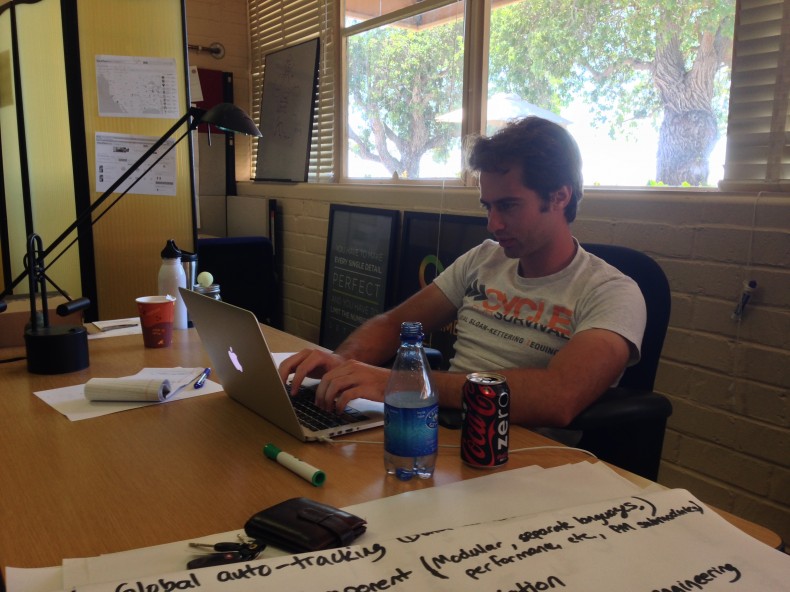Sep 29, 2014 8 Questions With : Luke DePass and Ivan Bercovich
We recently hosted an Imprint Presents event with John Maeda, the former President of RISD and current design partner at the legendary venture capital firm, Kleiner Perkins, where I got the opportunity to meet Luke DePass and Ivan Bercovich from FindTheBest, a research engine that connects people with data in a vastly different way than any other search engine. Founded by Doubleclick founder, Kevin O’Connor, their office is located in gorgeous Santa Barbara, a few hours North of the Los Angeles startup scene. Although a bit unorthodox of a location it works perfectly well for their company culture and what they are trying to achieve. Luke is a UI/UX Design Lead and Ivan is the Senior Director of Engineering. They have two distinctly different backgrounds and stories of how they became involved with FindTheBest and were nice enough to both participate in our 8 Questions series.
1. What is FindTheBest and how did you guys get involved?
FindTheBest is an online research engine focused on collecting, structuring, and connecting the world’s data — 88 billion facts to date — to give people the most information about their interests. Our desktop site, mobile site, and embeddable widgets let more than 27 million monthly visitors thoroughly research thousands of topics on one intuitive interface.
Luke: I first got involved with FindTheBest when I was reading some local news articles. I had been looking for a web company doing innovative things in Santa Barbara and this was clearly one of those companies. I had a growing interest in interface design and user experience and realized this was the perfect place to jump head first into the industry.
Ivan: While I was getting my PhD in financial mathematics, I realized financial institutions were extracting a tremendous amount of economic value from analyzing data. It was something that really stuck with me and I quickly became interested in bringing some of this value back to consumers. After talking to a few consumer-finance focused companies, I came across FindTheBest and realized that the consumer-data opportunity went well beyond finance. All it took was a meeting with Kevin O’Connor and the rest of the founding team, and the decision to leave school and join the forces was easy.
2. It’s a bit unorthodox that your office is located in gorgeous Santa Barbara, away from the LA startup scene — what are the pros and cons?
Luke: Yes, Santa Barbara, the secret tech community. The pros for me are definitely the mental balance that you can easily achieve by being able to go for a run on the beach at lunch. I think all of the people at FindTheBest feel that they can easily get away from it all, and it makes the atmosphere in the office feel pretty special. Most days, I feel lucky and am conscious of not taking things for granted.
The biggest con to being in Santa Barbara would probably be that it’s harder to meet people — although its growing, the UX community here is pretty small, so if you really want exposure you do have to make the drive down to LA or up to SF. It can also make recruiting more challenging, but I think that goes both ways. We don’t have a ton of people knocking at the door, so we try really hard to seek out incredibly talented team members from all over the country — and who wouldn’t want to move to beautiful Santa Barbara?
Ivan: Like Edison said, “Genius is one percent inspiration, ninety-nine percent perspiration.” Startup hubs are great places to get inspired, build valuable networks, and explore different ideas. But that being said, most of the value in creating a disruptive startup will come from a ton of hard work and a great deal of dedication. I’ve found that a level of healthy isolation can be very conducive for that.
When I was living in SF, I was constantly bombarded with distractions: meetups, talks, conferences, hackathons, headhunters, and a million people looking for co-founders to join them in creating “the next big thing.” This constant “noise” made it very difficult to focus, especially when going through the dips that are the startup roller coaster. (Did I mention our office has beautiful ocean views, tons of great hiking trails nearby, and it’s only 20 minutes away from home by bike? That’s not something to complain about.)
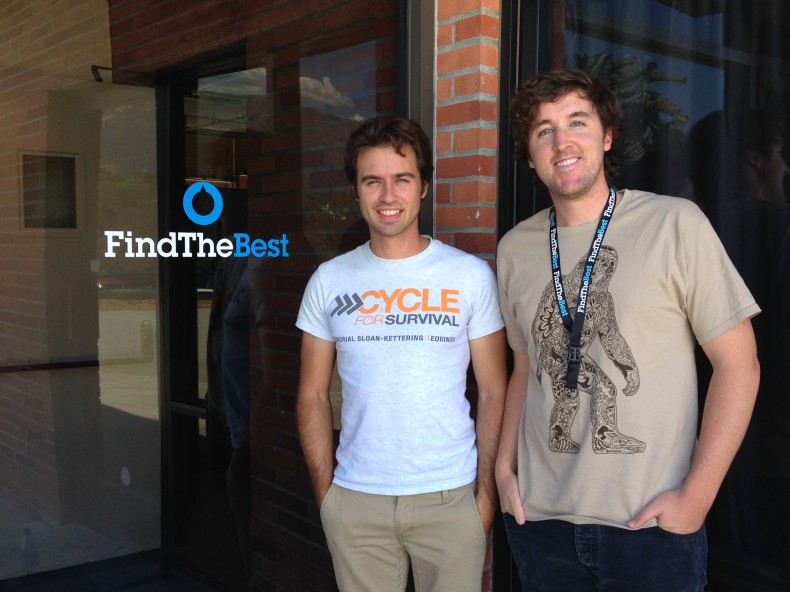
(Left: Ivan Bercovich, Right: Luke DePass)
3. What do you find most challenging about your respective roles?
Luke: I think the most challenging aspect of being a UI/UX designer at FindTheBest is communicating the value of iteration. We are an extremely data-driven team and have shaped our process to focus on both qualitative and quantitative information, using thorough analytics and user testing. So when we go to improve a feature, we often make very small changes to get signals about what our users really want and evaluate if it makes sense for us to move forward with a more comprehensive revamp. To the average Joe using our site, it probably doesn’t look like anything has changed.
I think the most frustrating part is we want things to be big and exciting to the rest of the company, but in reality running these experiments is not that exciting (to everyone). To counter this, we try hard to create inspiring demos of the work we are doing which paint a nice picture of what has been going on and how these small tweaks have been enhancing the user’s experience on the site. It can be strenuous to find ways to communicate these things effectively, but we put a lot of effort towards it so the whole company can really get pumped about these changes and the way we work. I have learned that this goes a long way in establishing trust within a growing company.
Ivan: Leading outstanding people can be incredibly challenging. How can I help one of the best designers in the world be even better? How can I push incredibly motivated people to do even more than they think they can do? How do I inspire my team when they are the ones inspiring me? Unless a leader has grandeur delusions, they will be experiencing similar concerns. After some years, I’ve come to realize management is not a privilege, but a responsibility. I’m accountable for my team’s success and each individual’s personal development, and must do everything I can to assist them. Providing constructive criticism is hard, but it’s one of the best ways to help the team improve.
In addition to the design of our product, there’s a highly complex design challenge in building an effective organization. One of the primary challenges we face as a growing company is ensuring that we keep communication flowing. Popular business literature seems to recommend that it’s better to over-communicate than it is to under-communicate. On the other end of the spectrum, Jeff Bezos has been quoted saying “communication is terrible.” Lack of communication will eventually cause a lack of coordination, but too much communication will effectively build a highly coordinated organization with zero output (all your time is spent maintaining your inbox). The problem of internal communication is far from trivial, and it takes a lot of tweaking to the organization. At FindTheBest, we have about 2 weeks per quarter where everyone over-communicates in order to come up with a quarterly roadmap. After that, it’s 10 weeks of mild communication and mutual trust which enables us to focus on building the product.
4. As a kid, what did you want to be when you grow up?
Luke: I’ve always had my eyes set on being some sort of visual artist. When I was younger, I was sure I was going to be the guy who drew and painted the Ninja Turtles that I watched on TV. Looking back, I remember being more fascinated with how toys looked and felt than I was about what they could do.
Ivan: I was actually driven a lot more by curiosity and obsessive knowledge consumption, than any particular career path. Up until the time I graduated from high school, I had no idea what I wanted to do. It was only after leaving Argentina and coming to America, that the idea of a career took a more central role in my life.
5. Describe the company culture and what a typical workday looks like.
Luke: A typical work day for me usually consists of spending a good amount of time iterating on the latest project I’ve been working on – it may be setting up a test for an enhancement or fixing small visual bugs. The rest of the day I’m usually giving input on other team member’s projects or am in Photoshop creating mockups to flush out ideas for upcoming projects.
I’d describe the culture as lightweight, innovative, and gritty. We do our fair share of research in all areas of our product, but when it comes to adopting a new process, technology, or design pattern we are skeptics. We move fast and only adopt things that help us move even more quickly. We stay away from the hot post on hacker news, as we have learned that most of those things come with baggage that we can’t afford to take on just to be cool.
Ivan: I think Luke said it perfectly — we are definitely a group of people who are constantly looking for new ways to innovate. We’re not stuck in the status quo. We also hate to lose and I think that competitive nature really pushes us to be the best we can be in all aspects of our work.
6. What’s your favorite post-work destination?
Luke: My favorite post work destination is definitely a long run around downtown Santa Barbara. It’s perfect for clearing the mind and achieving that zen state. I often have my best FindTheBest ideas on those runs!
Ivan: Three words: indoor rock climbing.
7. Any ambitions of launching your own startup someday? If so, what kind/sector?
Luke: Absolutely. I think a part of what makes FindTheBest great is that we have actively sought out entrepreneurial people. I wouldn’t be surprised if more than 70% of this company went on to create their own ventures.
I would love to build my own incredible product that makes people’s lives better in one way or another. It sounds cheesy, but I’m confident that with the experience I’ve gained at FindTheBest, I have a leg up in designing a product that breaks down a difficult task and makes life easier or more enjoyable for the everyday individual. Lately, I’ve been thinking about ways to gamify resource allocation. One man’s trash is another man’s treasure sort of a thing, but everything is free. Might be hard, but it will be fun.
Ivan: Certainly, and this is probably the case for almost everyone at FindTheBest. A good comparison is that when you look at today’s NYC startup scene, almost every company has some connection to DoubleClick (founded by our current CEO, Kevin O’Connor, in the 90’s). I think that will be FindTheBest 15 years down the line.
I haven’t given too much thought to what exactly I want to do next, but would love to find use cases where technology can have a large economic impact on society. Commercial transportation and affordable housing are two topics that come to mind.
8. If you could give some advice to your teenage self, what would it be?
Luke: Woah, this one is easy. I would definitely tell myself to learn how to program immediately. I love design, but I know that it’s only one portion of executing on an incredible web-based product. There are people on my team who eat sleep and breath JavaScript. It blows me away how good they are. I know I can get into it now, but looking back it would have been nice to come into the FindTheBest time in my life a little more full-stack savvy. That is part of why I love working directly with front-end developers at FindTheBest — we learn so much from each other and really take the time to explain how and why we do what we do.
Ivan: Talk to every person you meet and show authentic interest in what they do. If there’s chemistry, reach out and ask if there is any way you can help them. Many people think the value of relationships is in asking for favors, but I’ve always gotten more from providing them.



